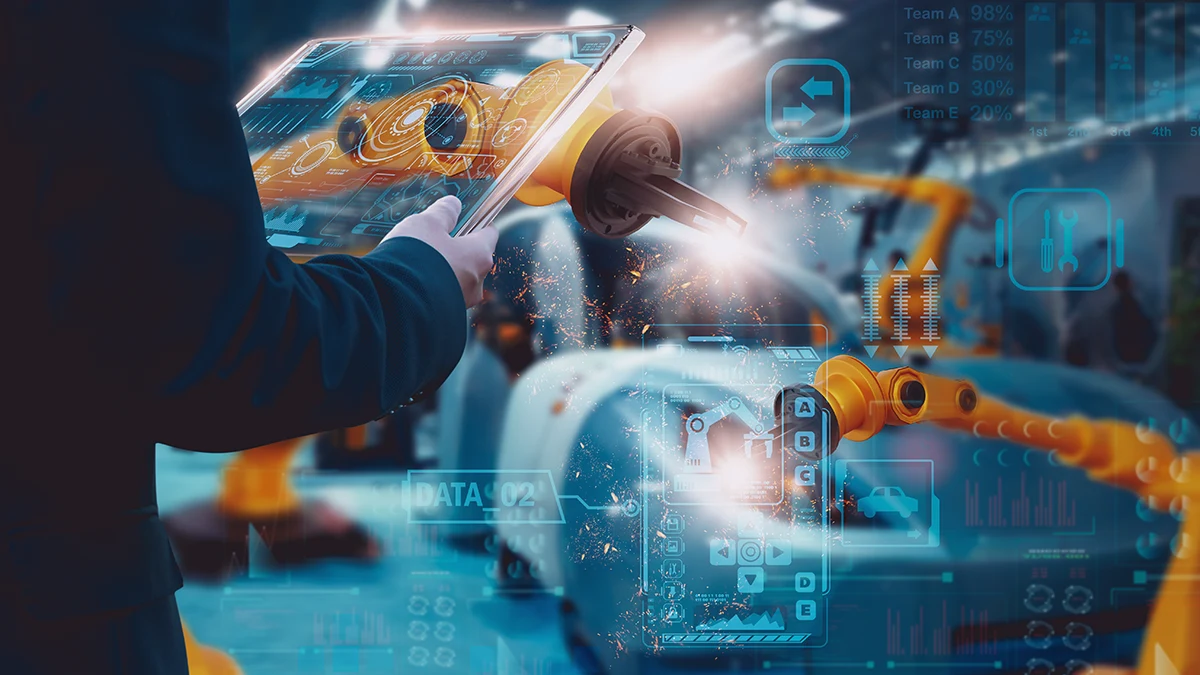Digital Transformation in the Automotive Industry: How PLM is Revolutionizing the Automotive Sector

The modern automotive industry faces dynamic changes driven by the need to adapt to global technological, environmental, and economic trends. Digital transformation in the automotive sector plays a crucial role in addressing these industry challenges. In this context, Product Lifecycle Management (PLM), empowered by digital transformation, has become an essential tool for implementing modern solutions effectively and maintaining market competitiveness.
Why is Digital Transformation crucial for the Automotive Industry?
Digital transformation in this sector involves integrating advanced technologies, such as the Internet of Things (IoT), Artificial Intelligence (AI), and data analytics, into the design, manufacturing, and data management processes of vehicles. The goal is not only to improve operational efficiency but also to accelerate innovation and respond more effectively to customer needs.
In the automotive industry, digital transformation focuses on several key areas:
Reducing Time-to-Market: essential in a world of rapidly changing customer demands.
Lowering Design and Production Costs: achieved through process optimization and efficient resource management.
Enhancing Innovation: through the integration of new technologies and their implementation in products like smart cars and autonomous vehicles.
The Role of PLM in the Digital Transformation Process
PLM systems play a pivotal role in the digital transformation of the automotive industry by enabling:
Centralized Product Data Management: in automotive design, which requires collaboration across various teams and suppliers, data centralization is vital. PLM facilitates storing all product information in one place, eliminating data duplication and reducing errors.
Integrated Process Management: PLM integrates design, production, and maintenance processes, ensuring seamless operations and better management of the product lifecycle.
Accelerated Innovation: digital transformation demands the adoption of computerized systems. PLM supports this by enabling rapid prototyping, testing, and deployment of new technologies.
Regulatory Compliance Monitoring: the automotive industry is subject to stringent regulations concerning emissions, safety, and quality. PLM helps manage documentation and ensure compliance with legal requirements throughout the product lifecycle.
How digital transformation is changing the engineering and automotive industries
Learn how SaMASZ, through digital transformation, improved production efficiency and optimized processes. This is an excellent example of how supply chain digitalization and modern technologies can transform an organization.

Examples of PLM Applications in the Automotive Industry’s Digital Transformation
Electric and autonomous vehicles (EV) Design: the future of the automotive industry lies in electric vehicles. PLM allows manufacturers to manage the entire design and implementation process efficiently, from component selection to energy consumption optimization.
IoT Integration with Vehicles: PLM supports the development of IoT-connected vehicles, enabling real-time monitoring of their technical condition and offering new services to users.
CO2 Emission Reduction: PLM enables manufacturers to optimize design and production processes to reduce their vehicles’ carbon footprint.
Optimizing Production Processes for automotive manufacturers
Digital solutions and advanced technologies allow automotive companies to optimize production processes on an unprecedented scale. Integrating advanced PLM systems with production lines enables precise resource management, waste reduction, and downtime minimization.
Additionally, technologies like digital simulations and real-time data analysis directly improve production quality. This leads to safer vehicles, which is crucial in meeting increasing consumer demands and regulatory requirements. As a result, automotive manufacturers can deliver higher-standard products while lowering operational costs.
Modern Digital Solutions in the Polish Automotive Industry
The Polish automotive industry, a pillar of the national economy, actively invests in modern digital solutions such as digital engineering and advanced PLM solutions. These technologies enable domestic companies to compete more effectively in international markets, accelerate design and production processes, and better meet customer needs.
The digital transformation direction taken by Polish manufacturers and suppliers not only boosts operational efficiency but also leads to the creation of smart cars with high safety standards and a reduced environmental impact. Integrating digital tools with traditional production processes lays the foundation for sustainable development in Poland’s automotive sector.
According to an EY Poland report, 84% of Polish companies have already identified digital transformation as a priority.

Growth of the Automotive Industry and Vehicle Data
The automotive industry is rapidly evolving, driven by increasing demand for environmentally friendly and technologically advanced vehicles. According to the International Organization of Motor Vehicle Manufacturers (OICA), global vehicle production in 2023 exceeded 85 million units, with forecasts indicating continued growth in the coming years.
The digitalization of the automotive industry and the digital supply chain play a key role in meeting these challenges, enabling manufacturers to manage data and processes effectively throughout the product lifecycle. With advanced technologies like PLM, vehicle manufacturers can adapt faster to market changes, introduce innovations, and offer customers vehicles tailored to their needs while maintaining high environmental and safety standards.
Learn more about what we can do for automotive manufacturers: https://ttpsc.com/en/industries/automotive/
PLM as the Foundation of Digital Transformation for automotive companies
Digital transformation in the automotive industry requires advanced tools for data management and process optimization. PLM is the foundation of this process, helping companies navigate technological changes and adapt to new market realities.
The digitalization of the automotive industry and supply chain transformation allow car manufacturers to achieve greater operational efficiency, accelerate innovation, and better meet market demands. PLM plays a crucial role in supporting automotive companies in creating more advanced, safer, and environmentally friendly vehicles.
Additionally, PLM streamlines automotive manufacturing operations by integrating product development with production workflows, enabling seamless coordination between design, engineering, and manufacturing teams. This integration leads to reduced production costs, faster time-to-market, and improved product quality, all of which are essential for staying competitive in the dynamic automotive sector.
